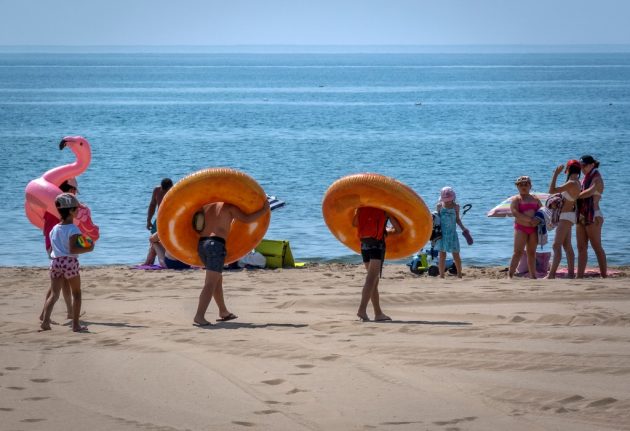Of 71 different sun-cream products labelled “for children”, 41 contained “extremely worrying” substances, according to a new study by WECF France and Agir pour l'Environnement (Act for the Environment).
The products tested – creams, milks and sprays – were of well-known brands such as Nivea, Bioderma, Garnier, Eucerin, Avène, A-Derma and Vichy, found in pharmacies, supermarkets and organic stores.
In total the organisations identified 29 harmful substances and classified them on a scale of three steps, yellow (“worrying”), orange (“very worrying”) and red (“extremely worrying”).
The organisations called for a ban on the use of these substances in products.
A total of seven substances were found to be “very worrying,” which meant that they were known to have an irritating effect on skin.
The study revealed that organic sunscreens to be generally less harmful than the other products, although several organic products also contained substances classified as “worrying” and “very worrying”.
Labels like “protects the environment,” “anti-stain formula,” “more water resistant “or even “made under medical supervision” were often deceitful, they wrote in the report.
Children should get a new layer of sunscreen applied “every two hours for the protection to be efficient,” they wrote, urging parents not to shy away from sunscreens that leave a white mark on the skin, “as this normally proves that it doesn't contain harmful nanoparticles”.
You can access the full report here with a list or all the products tested and the different harmful substances they contain.
The study did not test the protective efficiency of the products.



 Please whitelist us to continue reading.
Please whitelist us to continue reading.
Member comments